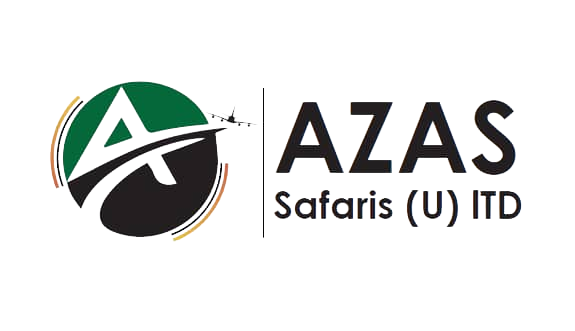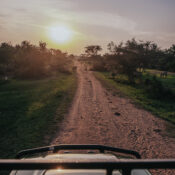Guide to Media and Communication in Uganda
Guide to Media and Communication in Uganda
For tourists on their first-time Uganda safari would want to peak a little bit into the media and communication environment in Uganda. A guide to understanding how to keep connected to your ordinary world while taking your holiday in this unknown little East African destination.
Suppose you’re heading into the remotest corners of the regions thousands of miles away from home. In that case, you want to keep your people back home informed that you can stop having fun, pretend you are having fun for a moment, and update your social media with a selfie. Humanity has flourished for 75,000 years because of connection, and we need to communicate or face extinction!
Snap out of it. The media and communication network in Uganda is reasonably as good as yours back home, in some cases better. You’ll have fun on your Uganda safari trip; take a look at what I have for you on the topic;
Media and Communication in Uganda
- Newspapers & Magazines
- Radio and Television
- Telephone and Mobile Networks
- Internet, Social Media, and Email
- Mobile Money in Uganda
Newspapers
Uganda has an excellent English-language press, with The Daily New Vision and The Daily Monitor offering the best local and international news coverage. The East African, a Kenyan weekly, has excellent regional coverage and commentary. You can buy Time and Newsweek at street stalls or supermarkets in Entebbe and Kampala.
The bi-weekly Independent Magazine, produced by independent journalist Andrew Mwenda and The Weekly Observer, provide insightful coverage of current controversies. Local daily tabloids like The Daily Pepper will keep you up-to-date with current gossip mirroring tabloid styles in other countries.

Besides newspapers, there are several online news websites. Media houses are increasingly using blogs as a medium of communication in Uganda.
Affordable data rates, increasing internet penetration, and free blogging platforms such as WordPress and Blogger are making internet users turn to blog platforms to creatively express themselves, comment on current affairs, inform the public, among other reasons.

Radio and Television
An increasingly varied selection of local and national FM radio stations service Uganda, most of them privately run, and offering listeners a lively mix of talk, hard and soft news, local and other current music — not to mention a litany of classical 1970s’ disco anthems you’d probably forgotten about on Radio One 90 FM!
The national television channels aren’t up to much, but most international hotels and many smaller ones subscribe to DSTV‘s multi-channel satellite services featuring the likes of the BBC, CNN, or Sky News, Aljezera and movie and sports channels.
Bars and restaurants with DSTV tend to be packed solid on Saturday afternoons during the English football season and other major football events.
If you’re not a fan of television, be rest assured you won’t find any in safari camps or lodges in wildlife parks unless they don’t value the definition of ‘Getting Away‘.
Safari Camps and Lodges in Uganda promote a message of connecting with nature and human interactions than a cable connection.

Telephone Landline Network
Uganda’s land telephone system is reasonably efficient — from overseas, and it’s definitely one of the easiest African countries to get through for the first time. The international code is +256, and area codes are as follows:
- Entebbe 0414
- Kampala 0414
- Mbarara 04854
- Fort Portal 04834
- Kasese 04834
- Mityana 0464
- Jinja 0434
- Masaka 04814
- Mubende 046444
- Kabale 04864
- Mbale 04544
- Tororo 04544.

Mobile Phone Networks in Uganda
In the last two decades, a significant development in Uganda’s economy and tourism has been the upsurge of mobile satellite telephones, with services now provided by seven companies: MTN, Airtel, Africell, Uganda Telecom, Smile Telecom, Vodafone, and Smart Telecom by Aga Khan Fund.
It is rare to meet an employed Ugandan who doesn’t own a mobile phone (rather more unusual, admittedly, to meet one who has any remaining airtime!).
Peak-rate domestic calls between all phone networks cost around UGX180-300 per minute, depending on which tariff option you select. Calls to some east African countries cost the same as local calls, but international calls cost UGX 400 – 5,000 per minute.
The satellite networks are ubiquitous, and you’ll be surprised to receive (or be able to make) calls from family and friends in the most unlikely places on your Uganda safari holiday. If you bring your mobile from home, you’ll enjoy international roaming — albeit at a high cost — through a local network.
If you intend to make extensive use of a mobile phone, it’ll be far cheaper to bring a compatible phone with you and insert a local SIM card for UGX2,000 or buy a cheap phone, fully connected, for as little as US$25. You’ll need to carry your passport for registration of the sim card on any network.

Pay-as-you-go airtime is available everywhere at shops labeled ‘Mobile Money.’ It’s worth loading up with a UGX 50,000 airtime in a town where your Uganda Safari driver stops for refreshments.
All of the phone companies provide an excellent service in Kampala and the primary urban centers, but to enjoy the reassurance of maximum possible network coverage out of town, MTN and Airtel are perhaps the best bet — for specific regions or itineraries, seek advice from your host or safari tour manager.
Generally, when calling in Uganda, you’re more likely to get through to mobile phones more quickly than to landlines, though they also tend to change with greater frequency. If you’re calling from outside the country, dial +256, then the whole mobile number minus the leading zero.
Mobile Phone dialing codes
- MTN Uganda 0770 – 779 and 0780 – 789 000 000
- Airtel Uganda 0700 – 706 and 0750 – 759 000 000
- Uganda Telecom 710 – 719 000 000
- Africell 0790 – 794 000 000
- Smile Communications 0720 000 000
Fixe lines dialing codes
- MTN Uganda 0300 000 000
- Uganda Telecom 0400 000 000
- Airtel 0207 and 0204 000 000
- Africell 0200 and 201 000 000
- Smile Telecom 02025 – 2029 000 000
Free calls dialing codes
- MTN Uganda 0800 2xx xxx
- Uganda Telecom 0800 1xx xxx and 0810 1xxxxx
- Airtel 0800 3xx xxx and 0800 707 xxx and 0800 777 xxx
- Africell 0800 900 xxx
Note: Replace 0 & x with the actual numbers of the person you’re calling

Social Media, Internet and Email
Social media chat and email are the easiest way to contact people at home, much cheaper than the telephone and almost instantaneously. Like most destinations you’ve been to, Uganda also is connected with most or all social media channels except Facebook. As long as you are connected to the internet, you’ll connect to your favorite social channel with no effort.
During the recent elections, the Government of Uganda claimed Facebook had violated Uganda’s community laws and blocked connectivity indefinitely. However, the social media’s other channels like WhatsApp and Instagram are still active within the country. If you have to connect to Facebook, you’ll have to use a legitimate VPN, as all Ugandans do.
Let’s assume that you already have an email address or subscribe to chat platforms like Skype, WhatsApp, Zoom, Facebook Messenger, and any other quick chat that uses the internet to connect you to your family back home. If not, it’s probably worth setting up a temporary address with Outlook, Yahoo, or any other similar free facility for the duration of your Uganda safari trip and giving out that address to anybody who might want to contact you.
With every mobile phone able to connect to the internet today, you won’t have to hustle connecting to the internet or looking around towns for cafes (which are plenty, by the way).
At least every modern place you’ll be spending your dollar will have a free WiFi hotspot; usually, the manager has the password, or it’s written on a sticky note somewhere.
Remember to carry your phone charger and travel adapter; we use 220 volts of electricity in Uganda. Ensure that you’ve set up your voicemail box for remote access. If you are a prepaid customer, you may want to load or carry sufficient airtime credit to last your roaming duration.

If you’re considering roaming, confirm that your home network has a roaming agreement with a Uganda network and that your account is activated to roam. Check to see that your phone will work on our 900/1800MHz networks. If you are a prepaid customer, you may want to load or carry sufficient airtime credit to last your roaming duration.
When switching on your phone on arrival in Uganda, it will automatically select a network. If this does not happen automatically, choose to search manually on your phone by selecting ‘settings,’ then ‘phone settings’ followed by ‘network selection,’ then select ‘manual selection’ You will receive a choice of all networks available in Uganda.
325 GSM network operators in more than 200 countries, use your existing mobile phone and number to browse the Internet, access all your social media platforms, make and receive voice calls as well as send and receive text messages.
The MTN & Airtel networks already cover 80% of Uganda’s population, including all the major cities and towns, tourist sites, Lake Victoria, access roads, and popular Uganda safari destinations like Lake Bunyonyi, Buhoma (Bwindi), Nkuringo (Bwindi), Murchison Falls, Kibale, and Queen Elizabeth.

Mobile Money in Uganda
African mobile networks have created an impressive credit banking and money transfer phone system called Mobile Money. Four of the most extensive networks and at least all banks in Uganda now operate a credit banking SMS system that works on mobile networks.
MTN MoMo grabs the fat man’s share, and the others dive for the breadcrumbs. If you buy a Ugandan sim card when you arrive, make sure they activate your Mobile Money account and give you a six-digit pass code. Deposit about UGX 35,000 ($10), you won’t travel 30 kilometers before something, or someone mentions Mobile Money, at least at every grocery shop.
That money could come in handy in tight situations or happy ones without your wallet. Cash deposit for Mobile money is 1:1, but there’s a charge for withdrawing, paying, or sending with your account balance relative to the total transaction amount. A friend or sympathizer can send you mobile money in exchange for cash.
Alternatively, you can download one of the FIN TECH Apps for Android and iPhone that accept mobile money using your credit/debit card. Like World Remit or MTN MoMo. You’ll create a wallet and then be able to send and receive money from many countries around the world.
Technology drives Media and communication growth in Uganda, but not to the scale of eastern and western economies, because of the country’s struggling economy. At its snail pace, more than 57% of the population of Uganda communicates using mobile phones. You’ll still be connected to your world when you come.
for more details visit
All Categories
Recent Posts
Birding Sports in Uganda.
Kidepo Valley National Park
Chimpanzee Habituation in Uganda
Tags
Quick booking process
+256 393254072


